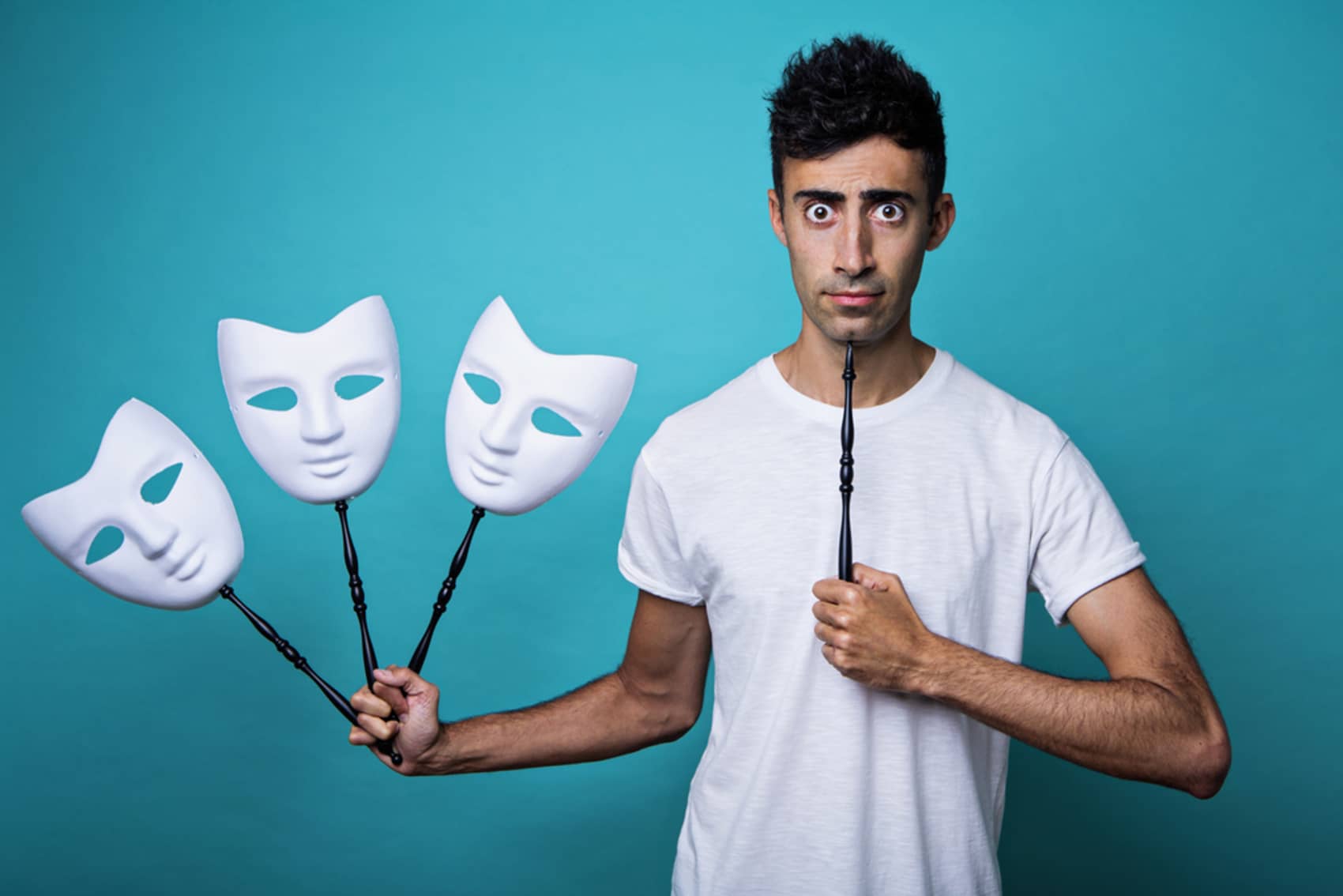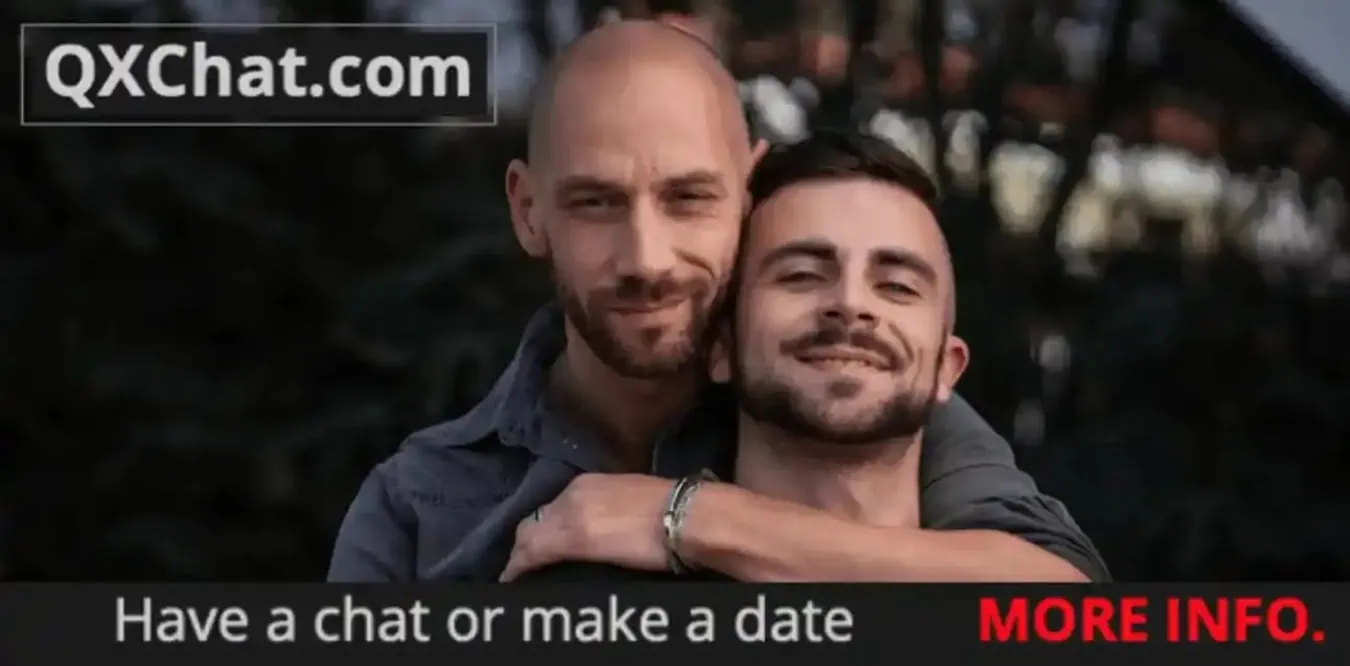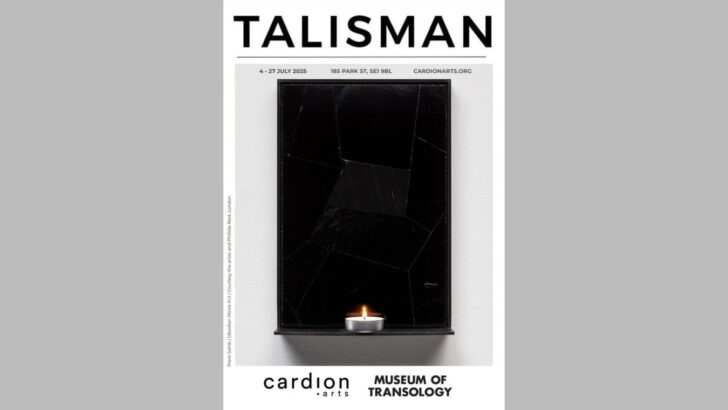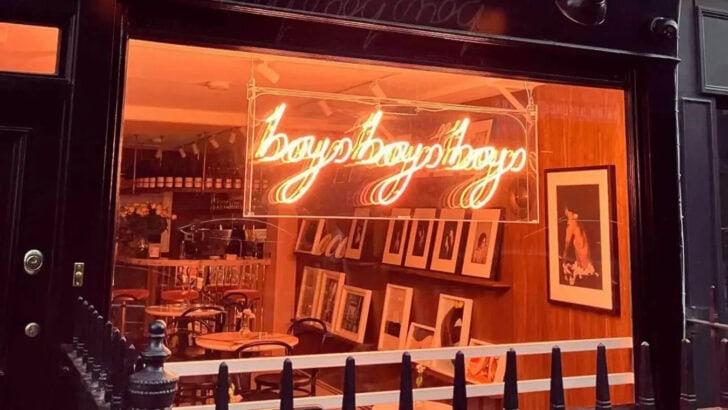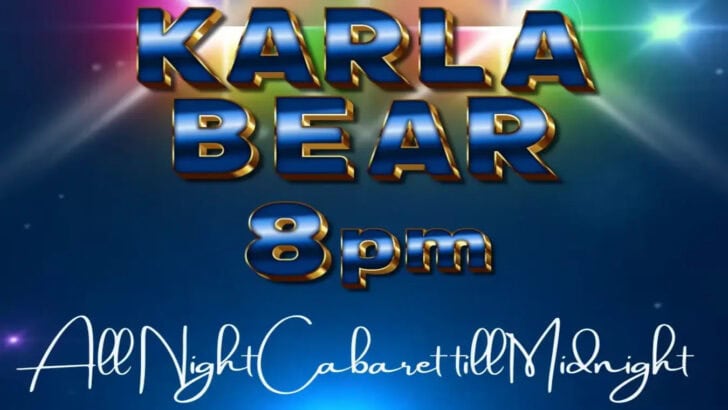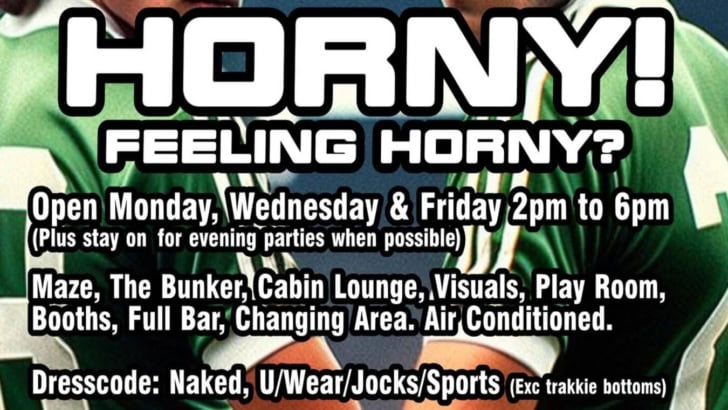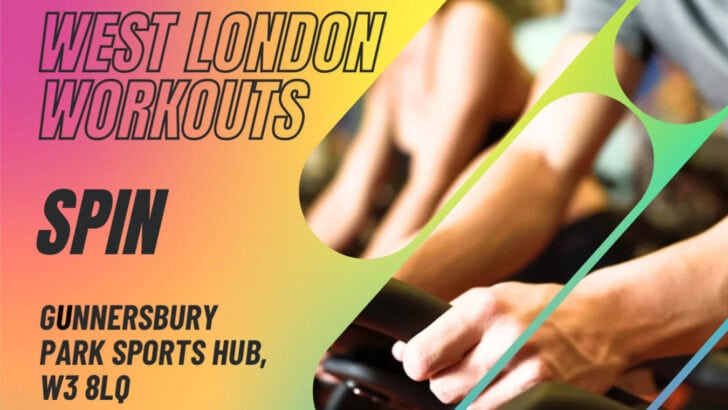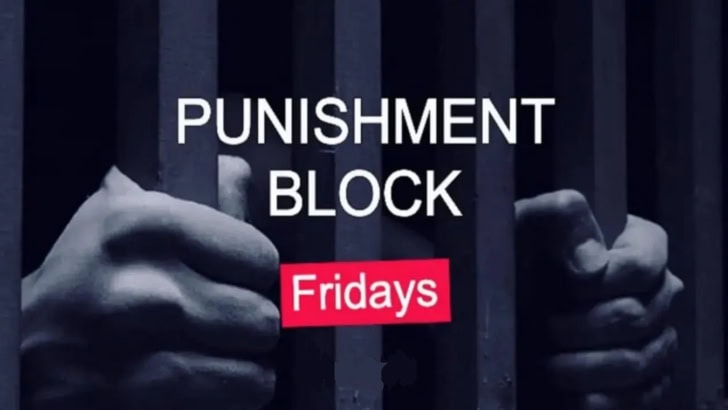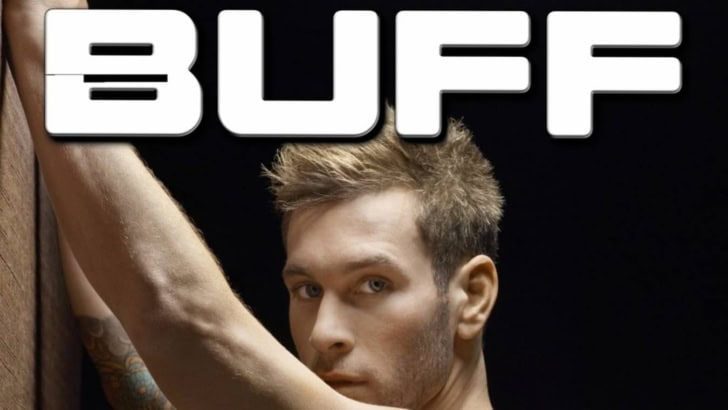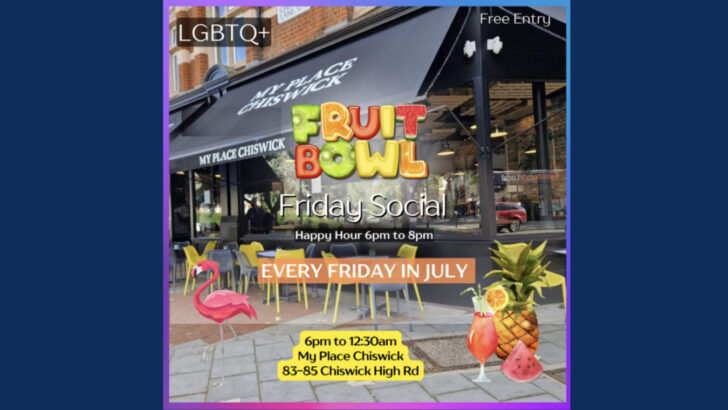Is anyone else really struggling at the moment? By Richard David-Caine
The other day I popped into my local Costa coffee shop, for a top up of caffeine and sugar. The barista casually greeted me and asked me how I was, in the way that people do without really wanting to know the answer. According to the rules of this conversational sport, I am expected to nod, state that I am ‘good’ and whack the question back, as if it were a ball to a tennis-racket. The barista is to then end the round, answering that she is also ‘good’, at which the game is over and we can move on from the whole awful ordeal of having to talk to a stranger. I’ve never been very good at sports, but this one I excel at; I’m kind of a pro. I even seek out extra points by grinning manically and doing a big nervous laugh, despite the fact that nothing remotely funny has actually been said.
However, this day was different; I went rogue. I decided to answer authentically. I know, what was I thinking? Red card. The conversation went something like this: ‘Hi, how are you?’ ‘Not great, to be honest. I’m really struggling.’ …Can you imagine the carnage that I batted back at this poor woman? She froze in confusion, attempting to formulate some kind of generic positive affirmation. But what is the appropriate response to such un-British honesty? She would need to consult the sport’s rule book (Google), and that would take time. Her face contorted further, possibly indicating a small puddle of urine had formed beneath the counter. I rescued the situation and put her out of her misery by asking for a latte and a gingerbread flamingo. We were back into safe territory. Phew. That was a close one.
The concept of mental health is very trendy these days, like going green, being vegan, or having no political integrity. But what does having poor mental health even mean? That it’s hard to find any joy? That you’re struggling more than usual? Or maybe that you require extra support or help? Well then, it looks to me like we’ve headed right into a new pandemic, a mental health one.
I would consider myself fairly privileged. I am (sometimes) a working actor, fairly successful in my field (I mean, my previous jobs include knocking small children into ball-pits in the CBeebies show, Swashbuckle, and singing a duet with a poo in CBBC’s Horrible Histories. Not exactly strenuous stuff.) I am in a loving relationship, I have my health, plentiful food, shelter, friends, family, a variety of Apple products – I can tick all the boxes of what I am taught I need from life. Yet, over the last few months, I had deep-dived into an abyss of anxiety that at times felt all-consuming. I’ve had bouts of anxiety before, but nothing this bad. With spiralling thoughts and rapidly depleting in weight, I began to feel desperately alone, stressed and subject to debilitating pangs of adrenaline that rendered me utterly terrified, and ultimately made me question if I wanted to go on living. All the while, I couldn’t get past the Piers Morgan-style voice in my head, shaming me for even having the audacity to feel this, considering my aforementioned privileged existence. ‘There are people out there with real problems’, Piers would say. ‘Stop whinging.’ I then had a heap of shame and guilt to add to the initial thoughts, which would make me feel even more anxious and isolated. What’s more, Piers was right. All my human needs were being met, what right did I have to complain? It didn’t make sense.
I would soon discover I was not alone.
As I finally opened up those around me, I was surprised to hear many were having bizarrely similar experiences – albeit to different degrees. People from all ages and walks of life were indeed profoundly struggling, in every friendship group and family unit that I turned to. It was at that point I became acutely aware of a growing number of posters popping up for mental health charities like The Samaritans, CALM and Mind, giving us messages like ‘stay’, ‘it gets better’, and ‘we’re here to listen’. Suicide rates were rising, as was divorce, loneliness and stress. The latest WHO figures warn there has been a “25% increase in [the] prevalence of anxiety and depression worldwide” And truly, is it any wonder?
We are only now starting to find our way out of what has been a deadly and global pandemic. One in which we were forced to completely isolate ourselves for huge periods of time, severing us from some of our most basic human needs, all the while being told that our very touch could kill our loved ones, and leading us to become obsessed with watching daily death counts swell each day. Once permitted to leave our fearful little cocoons, we were thrust out into a manic and confused new world, where most of our lives now revolved around staring at an illuminated screen (‘Don’t sit too close to the TV’, we used to be told as kids. ‘You’ll get square eyes!’ Do we still say that? Is that still a thing? I digress…) And then there’s the news we’re inundated with, which we’re now largely addicted to, mostly consisting of how we’re heading for a climate disaster, likely involving our own extinction, a nuclear world war, likely involving our own extinction, or an energy crisis in which prices have become so high we could barely afford the furnace to be cremated if the prior eventualities did happen. I never thought I’d say this, but I miss Brexit.
The new norm is to cut ourselves off, ‘remotely’ working where possible, with only surface-level WhatsApp conversations, polarised Twitter rants, filtered Facebook statuses, or the jealousy and insecurity-inducing world of Instagram to help us through. So, what is our solution to all of this? Are we talking about it? Are we slowing down? Are we seeking help? No. We’re doing what Britain does so excellently. We keep calm and carry on, of course. Stiff upper lip. We put on our brave mask, or our happy mask, or our I’m-definitely-not-having-a-break-down mask and we hold it together. In this new pandemic, these are the face masks we’re now expected to wear. All the while, we turn to bingeing on alcohol, and Netflix, and Wordle/Heardle/Quordle/Turdle (that last one was meant to be a joke, but I Googled it and it exists. Disappointingly it’s about turtles).
In our desperation, many of us turn to working even harder, so eventually we can buy that new car or house extension or butt implants; that will make everything better. After all, capitalism has taught us that if we only earn enough money, we’ll be ok. And if not, at least we’ll look like we’re ok, because we’ll have great pictures for the Gram, which equals likes. Hooray for likes! What was all that mental health rubbish about? We may be living in lonely, superficial, escapism-bingeing, fear-fuelled existences, but we’ve got lots of likes. We’re going to be alright, kids.
When I was in the depths of my darkness, I did something quite at odds with what my brain was telling me to do: I decided to open up. You know all those friends who say to you, ‘if you ever need me, you know where I am’ and you smile and say ‘thanks, that means a lot’ slightly vacantly, knowing full well you’ll never actually go to them with your most private pain. Well… I messaged those friends. I took them up on their potentially empty offer, and you know what? People loved that I reached out to them. They felt honoured, humbled, valued, and important. By being open, I was knocking down protective walls that I’d unknowingly been building over the last few years, and I was giving others permission to knock down theirs too. Suddenly two people alone, struggling, became two people struggling together. And it’s this feeling of connection that the world is so desperately lacking at the moment. Having been starved of human connection and community for so long, now is the time to start building bridges again to others. To give ourselves the permission to be honest and vulnerable. We have been locked in for so long, we’ve forgotten what it’s like to let things out. We are innately empathetic, social and compassionate beings. Even Piers Morgan. Maybe.
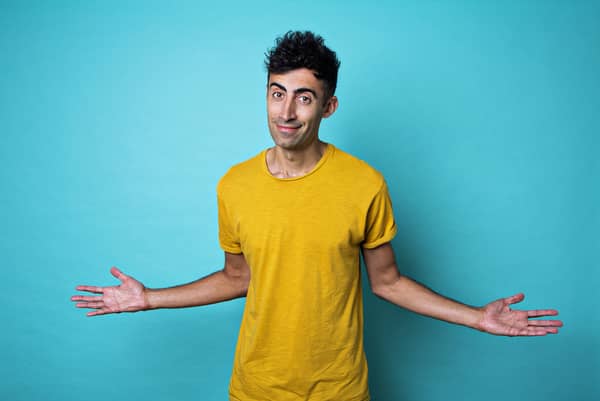
If you are struggling right now, I urge you to reach out rather than close yourself off. I’ve been down that road many times – it never ends well. Just more darkness, more fear, more bingeing on Married at First Sight Australia. That’s not the answer. (The show is blatantly staged and there are far too many episodes in a series.) You are not alone. Cliched as that phrase has become, it has never been more relevant. There is help, should you want it, all around you. Talk to a doctor, a therapist, a charity, a friend or family member. Texts are good, phone calls are better, face-to-face better still. After all, we have evolved from ape communities; our primitive brains are happiest when we are amongst our fellow tribal members, talking, playing and holding one another. My support network of friends and family was invaluable in lifting me out of a very scary moment in my life, and I will always be there for them, ready to return the favour.
In this mental health pandemic, we have full permission to take off our protective masks and to truly reach out to those closest to us. Though maybe not to a random Costa barista. That was just awks.
Richard David- Caine is a character actor and comedian, starring in BAFTA-winning comedies Swashbuckle, Class Dismissed, Horrible Histories and People Just Do Nothing. He also created, wrote and starred in his own surrealist TV show, Big Fat Like.
This year Richard is set to bring his debut solo show, ‘Tall, Dark and Anxious’ to the Edinburgh Fringe. Bold, energetic and interactive, the show is an anarchic carousel of characters and songs, reflecting the madness of our modern world and how we strive for happiness in all the wrong places.
Tall, Dark and Anxious is on everyday at the Underbelly Cowgate at 17.10 throughout the fringe and tickets are available here.
